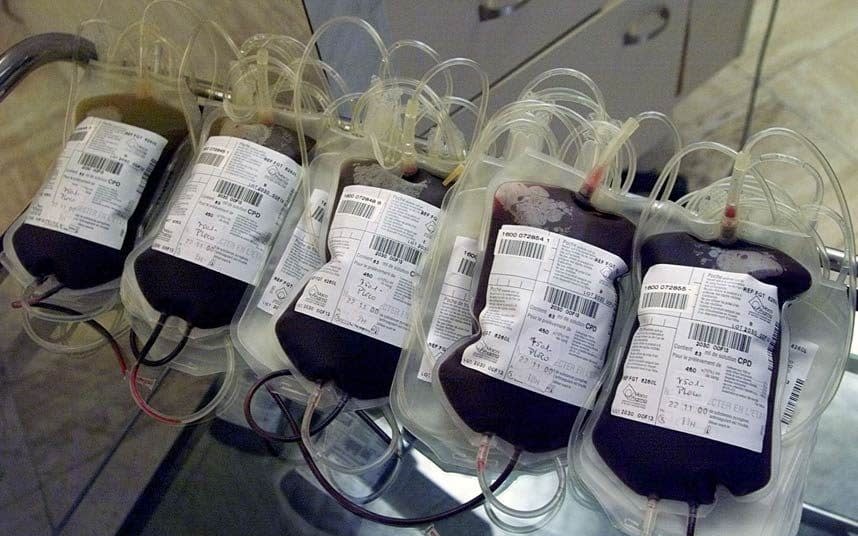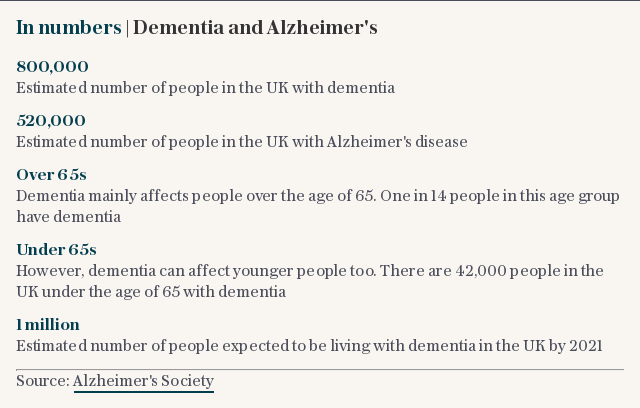‘Vampire therapy’ helps Alzheimer’s patients pay bills and prepare meals again

It might seem the stuff of fairy-tales, but a new trial has found that pumping the blood of young people into the elderly may help ward off the symptoms of dementia.
Scientists have been keen to try out so-called ‘vampire therapy’ on patients after astonishing results three years ago showed that infusions of young blood into older mice formed new blood vessels and improved memory and learning - effectively turning back ageing.
This weekend the findings of the first human trial were reported, and researchers say they were ‘surprised’ by the results. Although the phase one tests were only designed to prove that the procedure was safe, participants reported a marked improvement in Alzheimer's symptoms.
Patients found it easier to carry out daily tasks such as remembering to take medicine, paying bills or preparing meals, and Alzheimer’s charities in Britain said they would be watching the progress of larger trials with interest.
Dr Sharon Sha, associate professor of neurology and neurological sciences at Stanford University, who was the clinical lead on the PLASMA (Plasma for Alzheimer’s Symptom Amelioration) trial, said she was not expecting such early positive results.
“That was surprising, to me. The trial wasn’t powered to show efficacy,” she said.
“Our enthusiasm concerning these findings needs to be tempered by the fact that this was a small trial.But these results certainly warrant further study.”

Throughout history, many cultures have extolled the properties of youthful blood, with children sacrificed and the blood of young warriors drunk by the victors.
It was even rumoured that the North Korean dictator Kim Jong-il injected himself with blood from healthy young virgins to slow the ageing process.
Scientists believe that young blood is so potent because it carries large quantities of a protein known as GDF111, which diminishes as we age. Previous animals studies have shown that GDF1111 can improve the function of every organ in the body.
There are estimated to be 850,000 people with Alzheimer's in Britain, but despite several drug trials, no treatments have been show to halt, prevent or reverse symptoms.
For the new trial, 18 over-65s with mild to moderate Alzheimer’s were given either four weekly infusions of plasma from people aged between 18 and 30, or a placebo.
The scientists used only the plasma from the blood, the clear liquid that remains after red and white blood cells are removed, which contains proteins, salts, enzymes and antibodies.
After a six-week ‘washout’ period, the test were reversed and those initially receiving plasma were given infusions of placebo, and vice versa.
All patients were given mood, cognition and functional-ability assessments at the start and finish of each trial period.
Although there were no changes for mood, or cognition, on two of three assessments of functional ability, participants showed statistically significant improvement.
“I’m excited to see that giving repeated infusions of plasma to elderly people with Alzheimer’s disease is safe and that we can move forward to larger studies,” said Dr Tony Wyss-Coray, Stanford professor of neurology and neurological sciences
“But I’m also realistic enough to know that it is very easy to cure diseases in small animals and a million times more difficult in humans.”
Dr Carol Routledge, Director of Research at Alzheimer’s Research UK said: “Blood-plasma infusions have been in widespread use for medical purposes for a number of years, so while it is not surprising that they were found to be safe in this research, it is good news that this interesting approach can now be investigated in larger trials.
“This study of 18 people focused on the safety of the blood transfusions, and wasn’t set up to assess potential benefits to people’s symptoms.
“While the researchers point to potential signs of improvements, we need to see much larger studies before we can tell if this interesting approach could help improve the lives of people living with Alzheimer’s disease.”

Dr James Pickett, Head of Research at Alzheimer’s Society, added: “With no new treatments for dementia in the last 15 years, it’s encouraging to see researchers trying innovative new techniques to try and stop or slow down a decline in memory and thinking.
“We know from previous research that it is possible to improve the memory of an older mouse by giving it blood from younger mice. However, reproducing this effect in people is a different matter.
“We will be following the results of any further work in this area with great interest.”
The research was presented this weekend at the 10th annual Clinical Trial on Alzheimer’s Disease conference in Boston.

 Yahoo News
Yahoo News 
